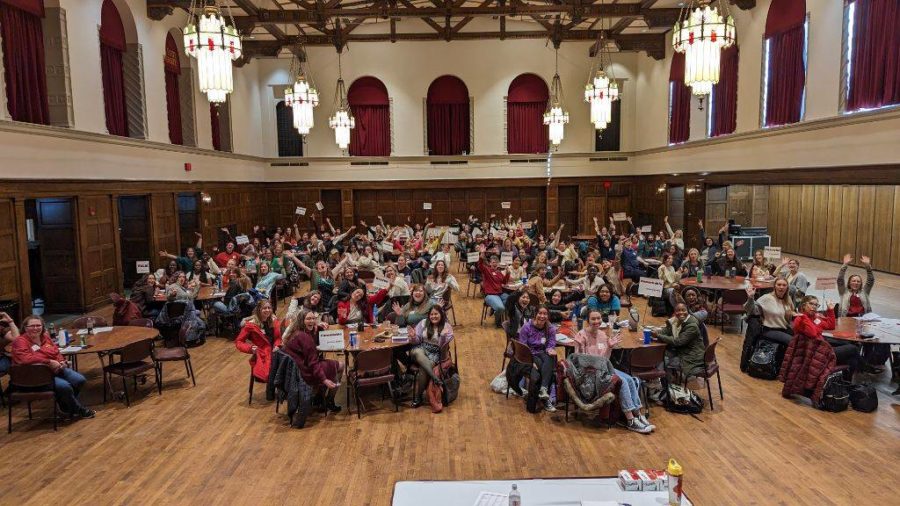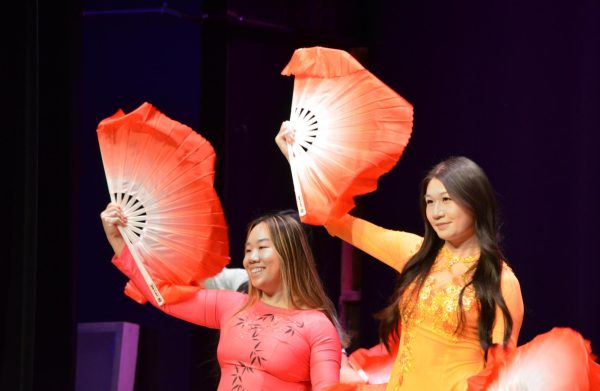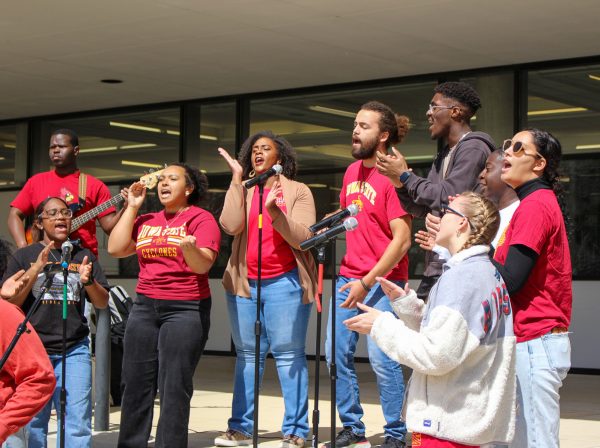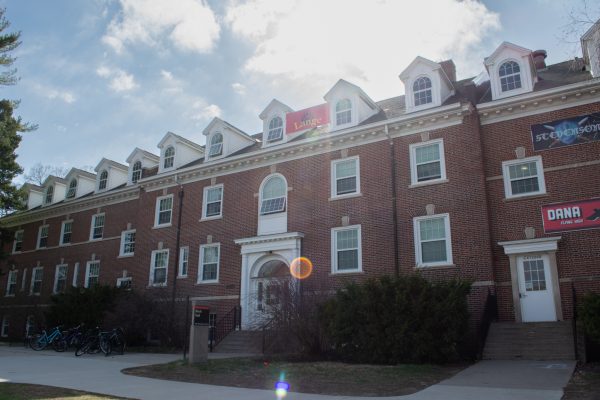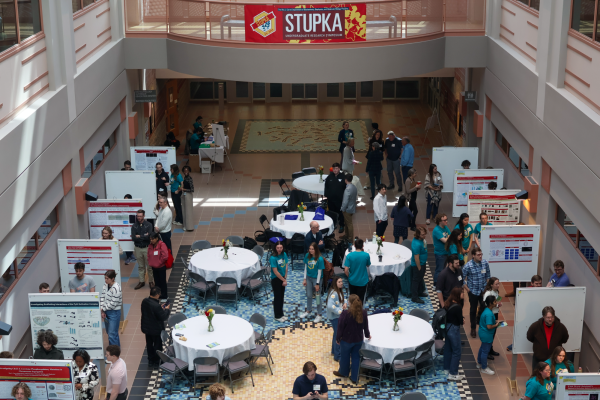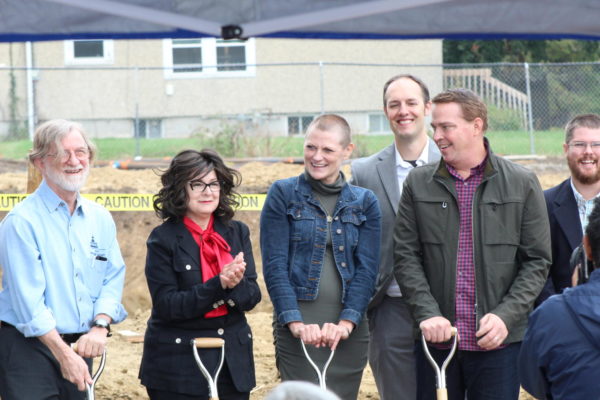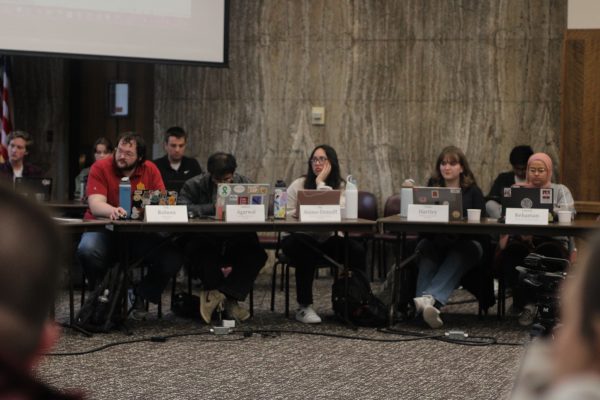Cardinal Women*: Creating community among students, faculty and staff
Students attend the 2023 Cardinal Women* Student Program.
For some women*-identifying individuals on campus, feeling seen and powerful can be difficult. However, programs like Cardinal Women* build a network of support and foster skills to help women* recognize their power on an individual and campus-basis.
Cardinal Women* began in 2017 with a proposal to the women and diversity grant to have 13 women participate in a program. They received 78 applicants.
The proposal was written by Tera Lawson, a program specialist in procurement services, Sarah Nusser, previous vice president for research and Dawn Bratsch-Prince, the associate provost for faculty.
“We reflected on what was most beneficial for us and found that it was the community of excellence that we had created,” Tera Lawson, a program specialist for procurement services, said. “It was people who got what we were going through and would be willing to share those experiences with others.”
Lawson got together with Denise Williams-Klotz, the assistant director of multicultural student affairs for the Dean of Students Office, and they both decided to create a program to make this happen on campus for others beyond the initial group of 13 people.
Cardinal Women* is a program designed to offer women* at Iowa State the opportunity to grow and “foster leadership development, goal orientation, and purpose in their personal and professional spheres,” according to their description on their website.
The asterisk behind women* is meant to include women who are transgender, cisgender, of trans-experience, gender non-binary or gender queer seeking the Cardinal Women* community.
Building support
“I wouldn’t say the program seeks to solve [problems],” Williams-Klotz said. “The program seeks to bring together people to talk about them, to discuss strategies and to help people figure out how they want to move forward with their own personal and professional development.”
Williams-Klotz said the program, down the line, may help solve some problems, but the goal is to give as many people as possible the tools and community to do great things. Lawson said the community and supporting others is one of the biggest pieces of the program.
“If you know that people have your back, you’re more willing to take on issues and advance something because you know you have a supportive environment of people that believe in you and are going to lift you up,” Lawson said. “Instead of looking at climbing your own ladder, how can you reach out a hand to help other people climb their own ladder?”
Diverse and representative student, faculty and staff
The faculty and staff application is open on the website and members of the next cohort will be notified in July. The faculty and staff program begins in August and takes place in the fall.
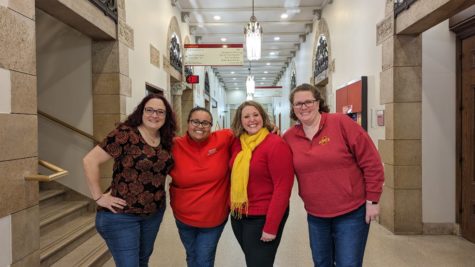
The student program occurs based on nominations by faculty and staff that a student can either accept or decline. This program takes place during the spring semester. This is currently the third year of the student program, which began during COVID-19, so this is the first year the program was held in-person with about 300 students.
Cori Cooper, a graduate student in animal science, participated in spring 2021, and thought it would be a good way to get to know peers across campus in different disciplines.
For other students, like Mia Kawamitsu, a senior in journalism and mass communication who participated in spring 2022, the areas of professional development and the focus on helping women* and fostering inclusivity drew her in.
Lawson said with the nomination process, the alumni of both programs are diverse and representative in terms of major, degree, race, ethnicity and other demographic factors.
Alicia Taylor, a graduate student in food science and human nutrition, participated in spring 2020 after being nominated by her principal investigator.
“She thought it would be helpful for me as a first-generation graduate student,” Taylor said. “I was also looking for tools to help build my resilience, public speaking and leadership skills.”
Alumni return as student leaders
After the inaugural student program, alumni were invited to come back as student leaders for the following year’s program.
“I have found some incredibly helpful tools and resources through the program, and I think it is important to try and pass that on to others,” Taylor said. “I also really enjoyed meeting other students and faculty at my first meeting as an attendee, and I knew I would enjoy that aspect again as a small group leader.”
Passing on skills and meeting people also led Cooper to come back as a student leader. Cooper said being exposed to people like Lawson and Williams-Klotz, who are there to help, and the opportunity the program provides women* made her want to give back to it.
Intentional small groups and discussions
For both the student and faculty and staff programs, the bulk of the work occurs during discussion activities and small groups of four to eight people, depending on the program.
“A lot of the skills discussed were ones that we hear talked about as being important, but they’re not explicitly taught to us,” Taylor said. “The program is useful to have as at least a starting point to building those skills, and it would be great to adapt it for different communities.”
Lawson said this is intentional, since members of each group are having conversations and getting to know and build trust with each other.
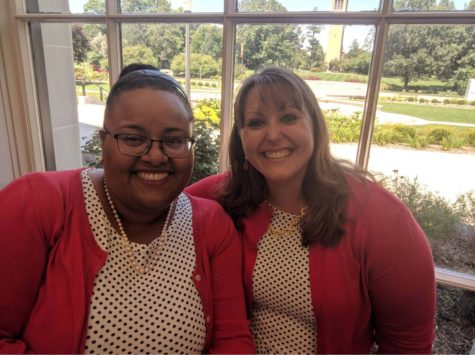
“It’s so that as we get into talking about harder topics…we’re with people who we’ve developed a bit of a relationship with,”Lawson said.
Some of these topics include discussion of the inner critic, insecurities, communication and finding power as an individual. Lawson said an activity present in all programs is discussions on what it means to own your power as an individual and to find power as people on campus.
“Part of that is recognizing others on campus are doing important, meaningful and impactful things,” Lawson said. “It’s spending time looking at those people who are really making a difference and how we can let them know that they’re doing that.”
Kawamitsu said aspects from the program like practicing using confidence and power have stuck with her, and this could look like deleting exclamation points and ‘justs’ from an email.
“I’ve gained a strong sense of power within myself that is and has always been there,” Kawamitsu said. “It’s just a matter of tapping into my inner mentor and internalizing that I am capable.”
Williams-Klotz said her favorite part of the program is hearing the discussion and said there is a lot of fun in hearing how students take in information in a different way.
“The meaning- making around some of the things we’re talking about is still powerful in all settings, but students sometimes have some different contexts, ” Williams-Klotz said. “Sometimes, the different ages or even generations or experiences mean conversations can go very differently than with faculty and staff.
Another component of the program includes making vision boards as a processing piece.
“Personally, there were many aspects of leadership development that I hadn’t heard of before attending Cardinal Women*,” Kawamitsu said. “The amount of ‘eureka’ moments I had was eye-opening.”
Making connections and gaining skills
“My favorite part doesn’t necessarily happen during the program, it happens afterwards,” Lawson said. “When students either mention it, or recognize it or see their laptop sticker, and then they’re immediately connected even if they weren’t in the same small group because they’ve had that similar experience.”
Lawson said she has seen that happen more on the faculty side where someone walks in with a Cardinal Women* journal and an immediate connection is formed between individuals.
“I think the biggest thing I gained was confidence in being a woman,” Cooper said. “ I am involved in agriculture and being a woman can be difficult.”
Cooper said the program gave her skills to speak confidently without belittling herself and her knowledge subconsciously.
Williams-Klotz said she and Lawson get the opportunity to speak to administrators, donors and the community about all the women* on campus and things they do.
“We can talk about it through the lens of this program, but also advocating for the fact that we need to build spaces for people to come together and to tackle all of these things that so many of us are facing,” Williams-Klotz said.
Kawamitsu said the program left her feeling inspired by the women* around her and the conversations.
“There are not too many spaces on campus where I’ve felt that same sense of uplifting support where we feel heard, seen and powerful,” Kawamitsu said.
Your donation will support the student journalists of the Iowa State Daily. Your contribution will allow us to purchase equipment, send our student journalists to conferences and off-set their cost of living so they can continue to do best-in-the-nation work at the Iowa State Daily.


